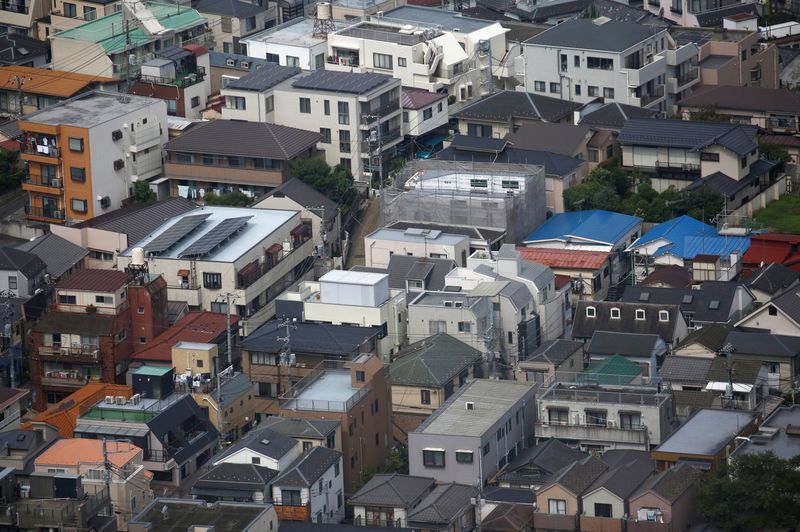By Leika Kihara
TOKYO (Reuters) - Japan's property market is showing signs of overheating because of an inflow of foreign money and growing investments by major real estate developers, the central bank warned on Friday.
The findings come as the bank kept interest rates ultra-low for decades to reflate a fragile economy and prop up inflation, prompting warnings from some analysts that its massive money printing was sowing the seeds of a future asset bubble.
Real estate-related loans have kept growing, mainly to fund demand by foreign investors, the Bank of Japan said in a quarterly report on the financial system.
In a heat map of economy sectors which are running hot, the ratio of investment by real estate firms to gross domestic product (GDP) turned "red", a signal that the property market was overheating, the central bank said.
"The increase in real estate firms' investment has been accelerated by urban redevelopment projects by major real estate developers," it added.
"In some limited commercial areas in central Tokyo, transactions in the higher price range have been increasing," it said, adding that developments in the real estate transaction market "continue to warrant close monitoring".
On Japan's banking system, the report said it remained stable on the whole. But it called for vigilance by financial institutions against the risk of a prolonged period of stress as global central banks continue to tighten monetary policy.
"From a long-term perspective, if banks' core profitability were to stagnate and capital accumulation were to stall, financial intermediation could be impaired due to a decline in loss-absorbing capacity," the BOJ said.
Japanese banks could also face risks from the rising possibility of interest rates remaining high overseas, it added.
For now, Japanese financial institutions' credit risk from foreign loans remain low, despite tightening global financial conditions, thanks in part to their efforts to rebalance their portfolios, the bank said in its report.

But credit costs could rise abruptly, particularly for loans to Asia, if overseas interest rates stay higher for longer, it warned.
The global banking industry was thrown into turmoil this year by the collapse of several U.S. lenders, among them Silicon Valley Bank, due in part to the impact of aggressive interest rate hikes by the U.S. Federal Reserve.